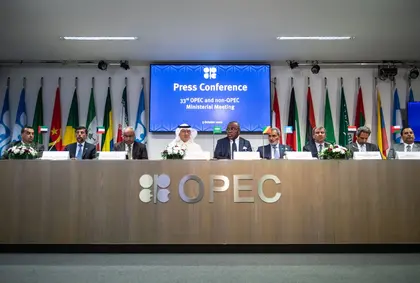Saudi Arabia and its OPEC cronies are offering the global market an unpleasant surprise. Namely, they have decided to significantly reduce oil production - trying to keep oil prices up after they had significantly declined in recent months. A barrel of crude was trading below $80 after several California banks went under and the risk of a recession loomed again. The paradox - by trying to keep oil prices high, Saudi Arabia and their cohorts are increasing the very risk of recession, which in turn will put negative pressure on oil prices.
What’s the result? The price did go up in the short term - but not radically. The level of oil price quotes has returned to the situation of a month ago, to the time of the US banking mini-crisis. Now Brent, the international oil benchmark, is just below $85 per barrel. It’s far from the coveted $100 per barrel level that oil producers dreamed of at the beginning of the year.
JOIN US ON TELEGRAM
Follow our coverage of the war on the @Kyivpost_official.
Well, not just dreamed of, but included in their forecasts.
Why did they do this? Is it just a head game? Are the Saudi prince's advisors telling him that the recession isn’t imminent anyway - and he has to make money?
Or is it simply greed? Along with an attempt to show the United States, which is clearly not satisfied with OPEC's actions, that Riyadh's policy is now independent. Especially after Saudi Arabia began to become more friendly with China, whose officials don’t care whether opposition journalists are cut into pieces by Saudi Arabia or not.

Drones Strike High-Rise Buildings in Russia’s Kazan
The paradox is that the United States, although opposed to rising oil prices, has turned into an exporter at this point in history. China, on the other hand, will definitely not like rising prices, especially amid its problems with economic growth.
Who else will win? Russia, of course.
It is trying its best to keep its budget from bursting amid sanctions and record war spending. It is unlikely that Saudi Arabia pushed this decision for Putin's sake. The Future King has his own interests. But there is no doubt that Russia will win.
Will this help Russia? This is an interesting question that also has no answer. It’s clear that Russia already needs help. It's clear to those analysts who see the statistics of oil and gas revenues going to Kremlin coffers. And to ordinary Russians who see the dynamics of the ruble exchange rate.
Since autumn, the ruble has devalued by 25 percent. The dynamics of the ruble exchange rate over the past six months have gotten much worse than the situation on the Ukrainian currency market. This seems paradoxical because it’s Ukraine’s territory where the war is happening. And Ukraine's economy has weakened, of course.
But Russian money has already reached the level of 80 rubles per dollar. And the devaluation of the ruble is, on the one hand, the result of printing more money, which is supposed to help to patch the hole in Russia's budget, and on the other hand, it’s one of the ways to patch this hole - using devaluation to increase the Russian government’s revenues from the sale of energy resources.
These revenues in the first quarter of 2023 are 50 percent lower than last year. Moreover, they have a negative dynamic. In March, the price of Russian Ural oil decreased – down from February. In addition to the usual losses from taxes on oil and gas sales, petroleum products were added to the list in March.
The sanctions have clearly been working, even though Russia is trying to sell its diesel and other refined products at crazy discounts. However, duties on the sale of petroleum products fell 4 times in March. This is impressive. Even active assistance from Turkey, which is now trying to play the role of a diesel hub, does not help.
If Russia is trying to cover the shortfall in oil revenues using the National Welfare Fund, a common “nightstand,” the costs of the war are financed by minting more cash. The war has increased expenses of the Russian budget by 40 percent. The effect is exacerbated by inflation.
This money should put pressure on the exchange rate. But so far, it hasn't done so, because the Russian Central Bank has been trying to dry up the banking system by removing money from circulation.
But you can't squeeze a coiled spring like that for long. This was proven by Yanukovych's experience in February 2011, when he kept the exchange rate at Hr.8 to the US dollar. This does not work in the long term.
So, will Saudi Arabia save Putin given such problems in the economy?
Will a mere $5 increase in the price of oil save him from such a heap of problems? No. Not to mention the fact that if OPEC’s careless steps accelerate the recession, the latter will collapse the oil market so much that Russia will only dream of current revenues.
Just as the Kremlin is now only dreaming of oil revenues for 2022.
You can also highlight the text and press Ctrl + Enter






